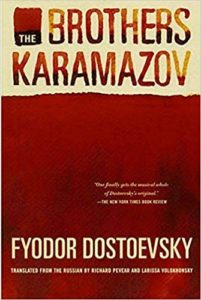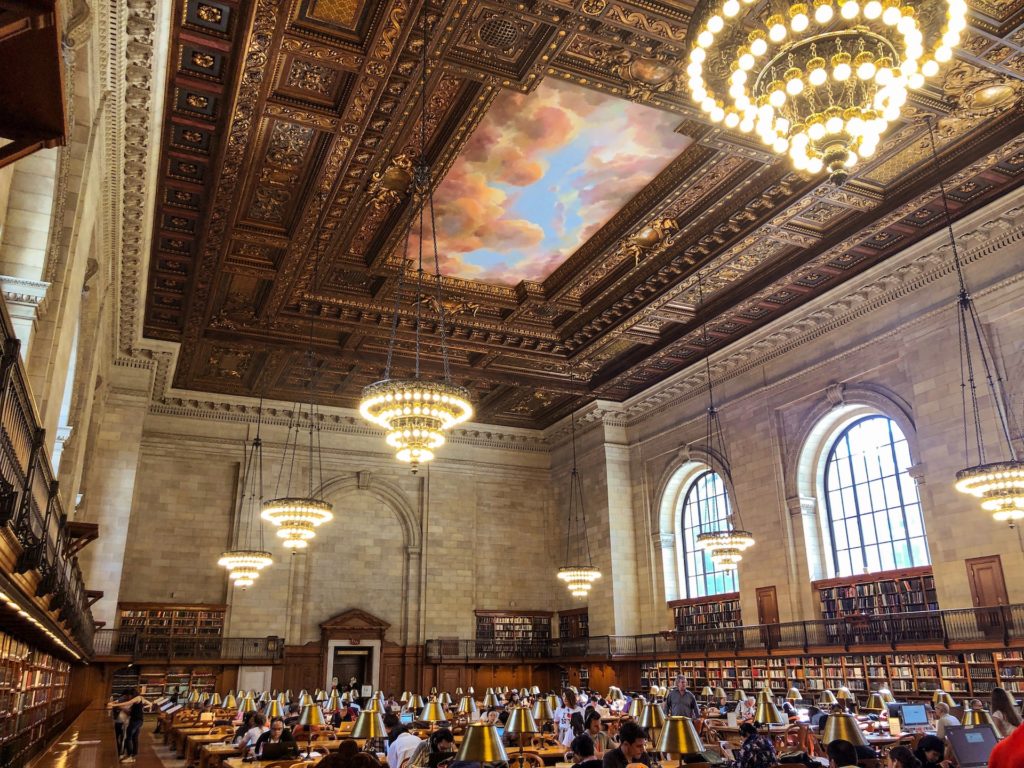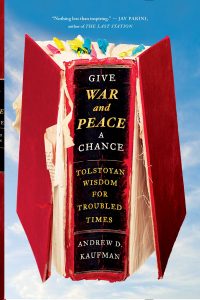To Teach is To Love: Dostoevsky’s Message to Educators in Our Troubled Times
Alyosha, the youngest of the Karamazov brothers, has just lived through the heartrending tragedy of his father’s brutal murder followed by his brother Dmitry’s wrongful conviction of the crime. His heart now reeling a few days after the grueling trial, Alyosha, twenty-three, goes to the funeral of the schoolboy, Ilyusha Snegiryov, and there meets a group of youngsters he’d met weeks earlier.
These are the same boys who had once humiliated and abused the poverty-stricken Ilyusha, and then, through Alyosha’s love and guidance, later recognized the terrible pain they’d caused their schoolmate.
Eventually, with Alyosha’s encouragement, they asked Ilyusha for forgiveness, and, in order to comfort him in his final hours, gathered around the bedside of their perishing comrade.
To Teach Is To Love
Together once again, this time at Ilyusha’s grave, Alyosha and his protégés feel a powerful connection with one another, softened and united by their shared suffering in the face of Ilyusha’s untimely death. The boys listen raptly as Alyosha, at this moment, delivers his final lesson to them: “[N]ever forget how good we once felt here, all together, united by such good and kind feelings,” he tells them:
“And even though we may be involved in the most important affairs, achieve distinction or fall into some great misfortune—all the same, let us never forget how good we once felt here, all together, united by such good and kind feelings as made us, too, for the time that we loved the poor boy, perhaps better than we actually are…….
[N]o matter how wicked we may be—and God preserve us from it—as soon as you remember how we buried Ilyusha, how we loved him in his last days, and how we’ve been talking just now, so much as friends, so together, by this stone, the most cruel and jeering among us, if we should become so, will still not dare laugh within himself at how kind and good he was at this present moment.”
I’ve read these words from the final scene of The Brothers Karamazov countless times, and yet it was only recently that I understood them in an entirely new light. Alyosha, I’ve come to see, is at this moment a teacher.
He imparts to his young protégés—not merely in words, but in the humility and passion in his voice, in his ability to put himself on their level and speak with them rather than to them—the great lessons about love and humility and the interconnectedness of the human family communicated throughout this novel.
Here is a teacher speaking from the depths of his own heart full of suffering. Here is a teacher unafraid to speak of love, to teach love, to embody love.
A Teacher and His Students
This is the very sort of teaching that I have striven to model in my own classroom, succeeding only partially at this, and even then in my best moments, when I am connected to my heart’s deeper wisdom.
One such moment came last spring in the last minutes of the final day of my Books Behind Bars class, in which my university students meet regularly with residents at a juvenile correctional center to discuss big life questions—Who am I? Why am I here? How should I live?—through the lens of Russian literature.
Our last meeting with the residents had taken place a few days earlier, and today was the final opportunity for the university students and me to say good-bye to one another and reflect on the meaning of our shared journey.
All eighteen of us—my students, course assistant, and myself—are sitting around a large classroom table, looking at one another with anticipation. The sun shines brightly, and the fresh May breeze slips through the open windows, bringing with it the pungent scents of spring flowers now in full bloom.
I remind everyone that these would be our final minutes together as a community in its current form, and invite them to share whatever they feel they would like to say to the group.
One student begins to speak, expressing through tears the gratitude she feels toward her classmates for the lifelong relationships she knows she’s formed this semester. Another student speaks of the correctional center residents whom she’s come to love and whom she fears she might never meet again. Still another student thanks me and my course assistant for shepherding him through a special journey whose final minutes, he gratefully acknowledges, happily coincide with the last minutes of his own college career.
And then I speak, quietly, my voice cracking, trying to express to my students what this class has meant to me, what they have meant to me. I invite them to breathe in the connection we are all feeling in this moment and to always keep this memory tucked away for future occasions when they are overwhelmed by busyness, or emptiness, or the discordant voices of cynics trying to convince them to give up on their idealism.
I tell them to preserve in their memory banks, too, recollections of our journey together this past semester, of how we came together fifteen weeks earlier, an anxious group of strangers, only to depart a community of truth-seekers who have moved one step closer toward creating the kind of society we all hope to live in one day.
“That’s what this class is all about,” I say. “That’s what education is all about.”
Taking Responsibility for Every Human Being
I have never experienced anything like the family tragedy that has befallen Alyosha. Yet I’ve lived long enough to know my share of personal suffering, as well as the shared pain of living in a society that, like the Russia of Dostoevsky’s time, seems to have lost its moral bearings. Given this, I now believe that Alyosha Karamazov, though not a teacher in the strictly professional sense, understands something important that educators everywhere, especially in these times, would do well to heed.
He understands instinctively that one authentic conversation, one gesture of kindness, one expression of love on the part of a teacher has the power to change the trajectory of a young person’s life. He understands, too, the importance of withholding judgment and of radical humility before one’s fellow human being, thereby putting into practice the wisdom contained in the words of his late mentor, the famed Father Zosima, who said “the moment you make yourself sincerely responsible for everything and everyone, you will at once understand that…it is you who are guilty on behalf of all and all.”
The entire novel, The Brothers Karamazov, in fact, demonstrates what can happen to a society that loses touch with this imperative. Nowhere is this more evident, Dostoevsky believed, than in the functioning of the courts, where questions of human guilt and innocence are decided every day.
According to the jury who listened to the case of the Karamazov murder, the facts and rational deductions to be made from them pointed to one conclusion and one conclusion only: that Dmitry was guilty of parricide.
Everything seemed to line up: The motive—money—appeared clear. His erratic behavior the evening of the murder pointed, the prosecutor glibly argued, to an obviously guilty conscience.
Dmitry’s well-known hatred of his father and frequent threats that he would one day murder him—including a letter to that effect Dmitry had recently penned—sealed the case, as far as the jury was concerned. Dmitry was found guilty. Case closed.
And yet, he didn’t do it.
This gross miscarriage of justice that will cost Dmitry decades of his life stemmed from the same faulty thinking, Dostoevsky believed, that leads his society to privilege punishment over pity, or to rely exclusively on logical, left-brain thinking to get at the truth and pronounce judgments about human guilt and innocence.
Such a society is made up of individuals unable to see the motes in their own eyes, unwilling to accept their collective guilt and shared responsibility for the fates of their fellow human beings.
This is a society incapable of humility and love—the very qualities embodied in late Father Zosima, whose teaching Alyosha himself now feels called upon to put into practice in the world.
Today’s Classroom, Tomorrow’s Society
Abraham Lincoln said that “the philosophy of the schoolroom in one generation will be the philosophy of government in the next.” This insight has forced me to think hard about the kind of a society I’m modeling for my students in my very classroom. That this is more urgent than ever is patently clear every time I crack open a newspaper these days, and consider where we are as a society now and what may have gone wrong in our educational system a generation ago to get us here.
And then I ask myself: What are we as educators doing to make sure we rectify these mistakes for the next generation? What are the classrooms of today modeling for our students? Hierarchy, competition, and egoism, or community, humility, and love?
In The Brothers Karamazov, Dostoevsky shows us the troubled society of his times, and, through Alyosha, how a teacher can inspire his students to follow a different path. Wherever it may lead, that path, Dostoevsky believed and I agree, must start from a place of love.
For, as Father Zosima says, “everything, like an ocean, everything flows and comes into contact. You touch in one place and at the other end of the world it reverberates.”
***
Thanks so much for dropping by and reading what I have to share today. I appreciate your interest. If you think any of your friends would be interested in today’s blog post, use the share buttons below to share with them. If you enjoyed today’s blog post, click here to join my group of readers. I send out monthly newsletters and would never spam you….


This is a beautiful and intelligent approach to education. Thank you, Professor Kaufman. Marietta McCarty
Coming from a genuine educator, your comment means a lot. Thank you.